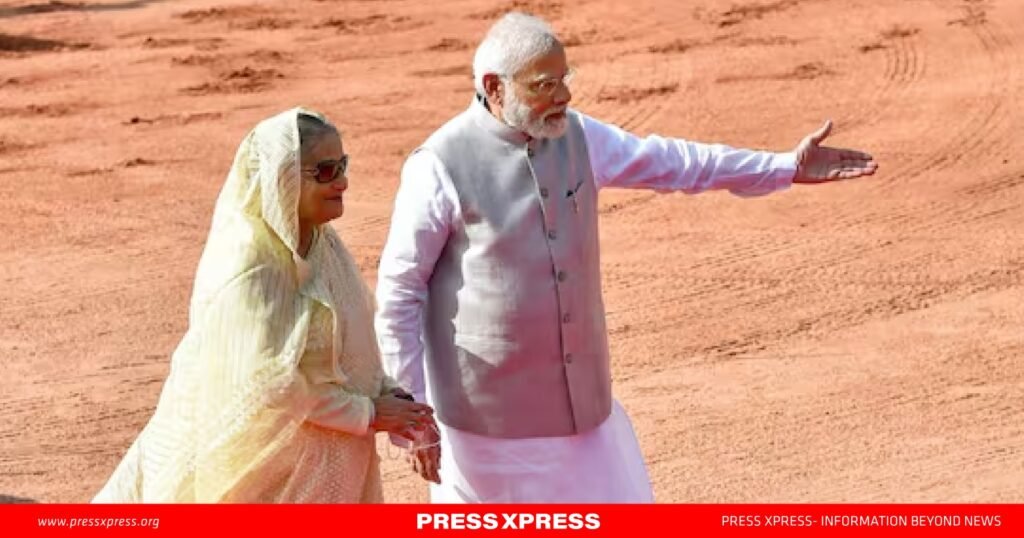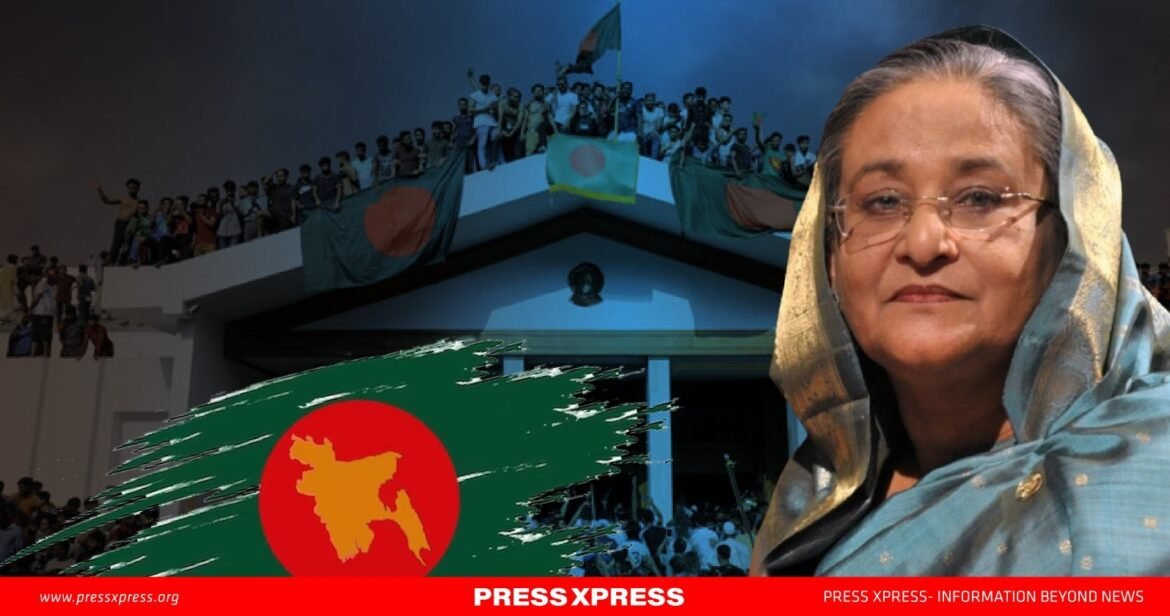India has confirmed that Bangladesh’s former Prime Minister Sheikh Hasina continues to remain in the country since early August, after Dhaka saw mass protests leading to the ouster of the Awami League government.
Randhir Jaiswal, Spokesperson, Ministry of External Affairs confirmed this on 18 October during a weekly briefing, reiterating that Hasina had arrived on short notice due to safety concerns and “continues to be here”. He was responding to media speculation that Hasina had moved to the United Arab Emirates or another country.
This confirmation also comes close to the Bangladesh International Crimes Tribunal (ICT) issuing an arrest warrant for Hasina, accusing her of involvement in “crimes against humanity” during the mass protests.
The back story
The violent protests, originally sparked by students against public sector job quotas, had snowballed into one of the deadliest unrests in Bangladesh since its independence in 1971.
Opposition parties including Bangladesh Nationalist Party (BNP), banned Bangladesh Jamaat E Islami, and some outlawed organizations including Hizb-ut-Tahrir had joined the protests. The former government had alleged that it was a plot to overthrow the Awami League government, a claim indirectly affirmed by the country’s new chief advisor Dr Muhammad Yunus, who mentioned in a recent speech how the protests were ‘meticulously designed’.
Hasina’s departure left a vacuum in Bangladeshi politics, which was long characterised by a rivalry between her Awami League and the main opposition BNP.
The interim administration that replaced her, headed by Nobel laureate Dr Yunus, took office three days after her departure.
What happens next?
The ICT chief prosecutor, Mohammad Tajul Islam, has emphasized the importance of the arrest warrant for a thorough investigation.
“The court granted our petition and ordered the arrest of former prime minister Sheikh Hasina,” he said, setting a deadline of 18 November for her to be brought before the tribunal.
Since the fall of Hasina’s government, more than 200 complaints have been filed against her and other Awami League leaders, alleging their involvement in enforced disappearances, murder, and mass killings. These allegations have fueled further political tension in Bangladesh.
It is notable that the ICT was set up in 2010 by Hasina’s government to investigate atrocities during the war with Pakistan, which gave Bangladesh its independence in 1971. The tribunal, reconstituted by the interim government, began its proceedings on Thursday. Critics say it lacks judges with experience of international law.
Unlikely extradition
Hasina’s continued presence in India is being seen as a challenge by many. On the other hand, any move to extradite her also faces significant obstacles.
The India-Bangladesh Extradition Treaty, signed in 2013, has a clause, Article 6, that says that extradition might be refused if the offence is of a ‘political character’.
Additionally, Article 7 enables India to reject an extradition request if the person could be tried for the same offense under Indian law. Article 8 also provides further grounds for refusal, such as if the offense is deemed trivial, the accusation lacks good faith, or the statute of limitations has expired.
Due to these provisions, while members of Bangladesh’s interim government have called for Hasina’s extradition, the bilateral treaty’s political stipulations make it unlikely.
The treaty has, however, successfully facilitated the extradition of terrorists and criminals in recent years, but its application in Hasina’s case remains contentious.
South Asia expert Sreeradha Datta also pointed to long-running links between India and Hasina’s regime, saying it was “unlikely that India will let Hasina down” by deportation.
“Both governments must show pragmatism and maturity while dealing with the situation. It cannot be the case that allowing Hasina stay should impinge on future relations,” said Datta, professor of international affairs at the Jindal Global University, reports DW.
Earlier in August, Jaiswal had also said at a press briefing, that extradition was in the “realm of hypothetical issues.”
“As we stated earlier, the former prime minister of Bangladesh came to India at very short notice for reasons of safety. We have nothing further to add on that matter,” Jaiswal told reporters.

Bilateral relations to continue
Jaiswal has admitted that bilateral projects have been affected by the current situation in Bangladesh.
The neighboring country is India’s biggest trade partner in South Asia, with bilateral trade estimated at $15.9 billion (€14.55 billion) in the fiscal year 2022-23. Before Hasina’s ouster, both sides were also due to start talks for a free trade deal.
Since the regime change in Dhaka, Indian Prime Minister Narendra Modi has spoken to Bangladesh’s interim leader Yunus and pledged that New Delhi will continue implementing its development projects across the border.
Modi reiterated “India’s support for a democratic, stable, peaceful and progressive Bangladesh.”
Meanwhile, as the 18 November deadline approaches, it remains unclear whether Bangladesh will formally pursue Hasina’s extradition or if diplomatic negotiations will ease the growing strain on bilateral relations.


